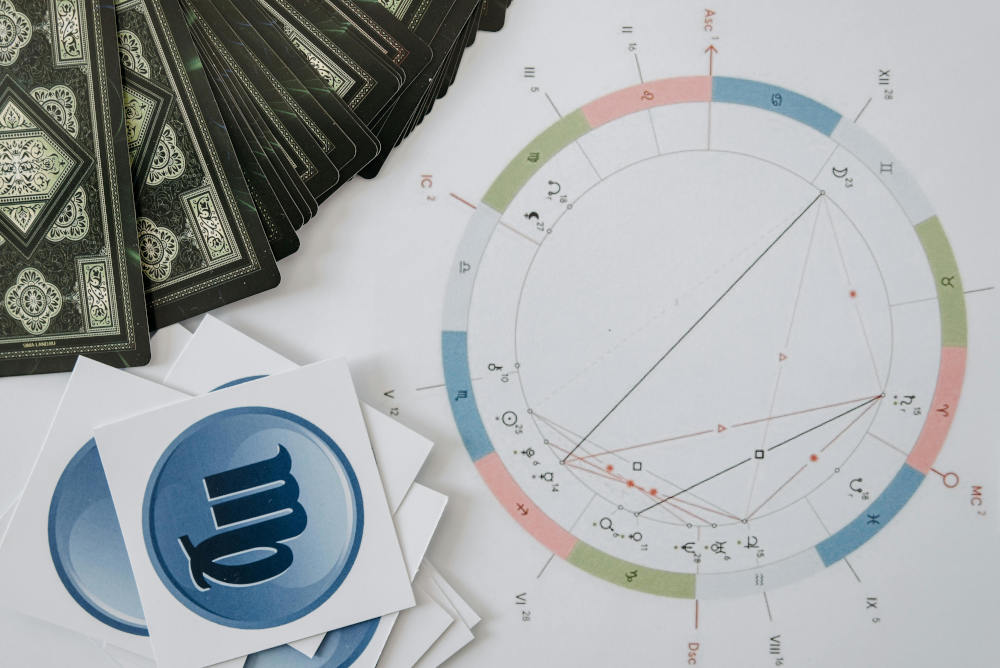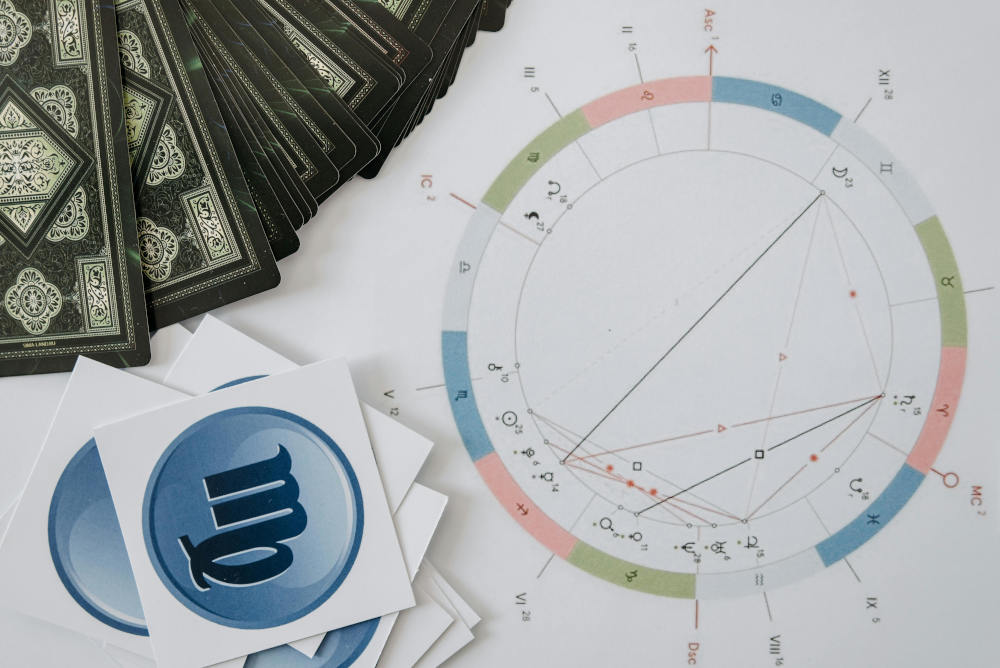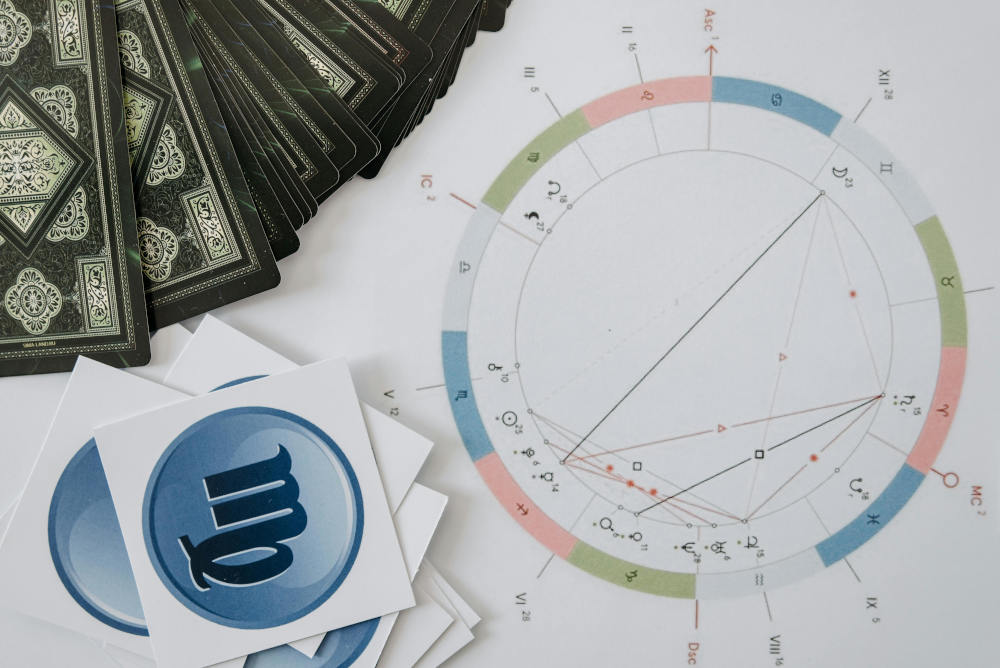
Astrology is supposed to offer insight, guidance, and clarity. For many, it provides comfort and meaning in a chaotic world. But for me, astrology became something else entirely. It started as a curious hobby—an innocent exploration of the stars. Yet over time, it evolved into an obsession that slowly began to dictate my choices, limit my freedom, and damage the relationships and opportunities that mattered most.
This is my story of how astrology, once a source of wonder, eventually became a trap that ruined key aspects of my life—and what I learned from it.
Panaprium is independent and reader supported. If you buy something through our link, we may earn a commission. If you can, please support us on a monthly basis. It takes less than a minute to set up, and you will be making a big impact every single month. Thank you!
The Allure of the Stars
Like many, I first discovered astrology during a difficult time. I was looking for answers, trying to make sense of recurring struggles. My birth chart felt like a cosmic fingerprint—something that explained why I was different, misunderstood, or unlucky. Each planet placement felt like a key to understanding myself.
I started reading horoscopes daily. Then came natal chart readings, synastry charts, moon rituals, retrograde warnings, and consultations with professional astrologers. I told myself I was seeking self-awareness, but really, I was looking for certainty—something to protect me from failure, heartbreak, or unpredictability.
At first, astrology empowered me. Then, it began to control me.
How It Took Over My Life
1. Career Paralysis
I once turned down a job offer because it didn’t align with a major transit in my chart.
It was a well-paying role at a company I admired. But after running a chart for the start date, I noticed it coincided with a Saturn square to my Midheaven—an aspect commonly interpreted as a “time of struggle, pressure, or setbacks in career.” I panicked. I thought, This means I’ll fail if I take the job. I declined the offer and waited for a “better time.”
That time never came. I passed on other roles, delayed interviews, and froze during professional decisions, always waiting for the “right transit.” Years later, I realized I had let astrology stunt my career growth. I missed out on real opportunities because I was too busy fearing the stars.
2. Relationship Breakdown
Astrology not only shaped who I dated, but how I treated them.
I once ended a promising relationship over incompatible moon signs. We got along well, laughed often, and supported each other. But when I compared our charts, I discovered our emotional blueprints clashed—my Cancer moon craved security, while his Sagittarius moon valued freedom. Online astrologers warned this could mean emotional miscommunication or detachment.
Instead of working through our differences, I treated them as fatal flaws. Every time he wanted space, I interpreted it as proof of our incompatibility. I stopped trusting the relationship and started second-guessing everything. Eventually, I pushed him away. We didn’t break up because we couldn’t connect—we broke up because I couldn’t see past his chart.
3. Decision Fatigue and Fear
Over time, I stopped making decisions without checking the stars first.
Should I move? Launch a project? Travel? Date someone new? Every question became a ritual of chart analysis. I’d spend hours on astrology apps, watching YouTube forecasts, or emailing astrologers for insight. I constantly feared doing things under a “bad transit” or retrograde.
This level of dependence created anxiety. I started living in fear of Mars retrograde, eclipses, or Saturn returns. I avoided making plans during Mercury retrograde and refused to commit to anything unless Venus was “well-aspected.” The more I tried to follow the stars perfectly, the more trapped I felt.
I wasn’t living—I was waiting.
When Astrology Replaces Responsibility
What I didn’t realize at the time was that I was using astrology to avoid something deeper: personal responsibility.
It was easier to say:
-
“I can’t succeed now because of Saturn.”
-
“This relationship won’t work—our charts clash.”
-
“I’m just unlucky because of my 12th house placements.”
Instead of growing through pain, I blamed the planets. Instead of owning my choices, I surrendered them to transits. Astrology had become a shield from life itself.
Real Stories: I’m Not Alone
I reached out to others who had similar experiences—and I was surprised how many people had also been hurt by overreliance on astrology.
Case 1: “I let go of my dream.”
Maya, 29, from London
“I’ve wanted to move to France for years. But every time I planned it, some astrologer would say, ‘It’s not a good time—wait until Jupiter crosses your IC.’ I kept postponing. It’s been five years. I still haven’t gone. I let astrology kill my dream before it even started.”
Case 2: “I stayed in a toxic relationship.”
Zane, 33, from New York
“My partner was emotionally abusive, but our synastry was intense—Venus conjunct Pluto. Every astrologer I followed said this kind of connection is karmic and transformational. I thought leaving would be a betrayal of some cosmic lesson. So I stayed. For two years. Because I believed the stars said it was meant to be.”
Astrology’s Double-Edged Sword
Astrology isn’t inherently harmful. In fact, when used wisely, it can:
-
Encourage self-reflection
-
Highlight unconscious patterns
-
Offer language for emotional growth
But when misused, it can:
-
Create dependency
-
Breed fear and avoidance
-
Delay personal action
-
Undermine relationships and career progress
Like any tool, it depends on the user.
What Experts Say
Even professional astrologers warn about the dangers of overidentification.
Deborah Houlding, respected traditional astrologer, states:
“Astrology is not fate—it’s potential. What you do with the information is what matters most.”
Rick Levine, a leading voice in modern astrology, adds:
“We need to remember: the chart does not compel. It describes possibilities. We still have free will.”
When astrology becomes deterministic, it’s no longer a mirror—it’s a prison.
How I Took My Life Back
Realizing how astrology had hijacked my life was painful—but freeing. Here’s what helped me begin to heal:
1. I Took a Break
I stopped checking horoscopes and deleted astrology apps. It was hard at first. I felt lost. But the silence helped me reconnect with my own inner voice.
2. I Made One Bold Move Without the Stars
I accepted a new job offer without checking any charts. I felt terrified—but also liberated. That choice alone broke the mental cycle I’d been trapped in.
3. I Focused on Self-Trust
Instead of asking, “What do the stars say?” I started asking, “What do I want?” I rebuilt confidence in my own instincts, decisions, and desires.
4. I Reframed Astrology
I didn’t abandon astrology completely. I reframed it as a tool—not a rulebook. Now, I use it sparingly, only when it feels supportive—not directive.
Lessons I Learned the Hard Way
-
Astrology can help you understand patterns—but it shouldn’t become an excuse.
-
Compatibility is not written in the stars—it’s created through communication and care.
-
Fear-based astrology is disempowering. True spiritual tools help you feel more free, not more trapped.
-
No chart can override your personal agency. You are the final authority on your life.
Conclusion: Beyond the Birth Chart
I once believed the stars held all the answers. Now, I believe something else: the answers live within me.
Astrology didn’t ruin my life. My blind faith in astrology did. I gave up my power, my voice, and my freedom in exchange for cosmic certainty—and it nearly cost me everything. But in reclaiming my choices, I found something better than predictions: I found possibility.
The sky may offer patterns, but it’s still up to us to draw the map.
Was this article helpful to you? Please tell us what you liked or didn't like in the comments below.
About the Author: Alex Assoune
What We're Up Against
Multinational corporations overproducing cheap products in the poorest countries.
Huge factories with sweatshop-like conditions underpaying workers.
Media conglomerates promoting unethical, unsustainable products.
Bad actors encouraging overconsumption through oblivious behavior.
- - - -
Thankfully, we've got our supporters, including you.
Panaprium is funded by readers like you who want to join us in our mission to make the world entirely sustainable.
If you can, please support us on a monthly basis. It takes less than a minute to set up, and you will be making a big impact every single month. Thank you.































0 comments